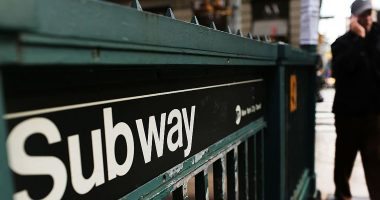This article is an onsite version of our Inside Politics newsletter. Subscribers can sign up here to get the newsletter delivered every weekday. Explore all of our newsletters here
Good morning. The big theme of Labour’s campaign thus far has been what it will not do — it will not prevent Diane Abbott from standing as a Labour candidate, it will not increase any of the taxes most of us pay, and now, it will not unpick the measures Rishi Sunak has put in place to reduce immigration.
In large part because Keir Starmer already has such a big lead in the opinion polls, his priority in this election campaign is reassurance — most importantly of the voters who have switched from Conservative to Labour.
It helps the Labour leader that Rishi Sunak is running a “save the furniture” campaign. Everything Sunak does is about shoring up the Tory party’s core vote. In so doing he is also reminding Labour’s traditional left-liberal core that they dislike the Conservatives and want to beat them, even if they feel Labour is offering them comparatively little. But Labour’s all-reassurance, all-the-time approach carries risks of its own if the party makes it back into government in five weeks’ time. Some thoughts on that below.
Inside Politics is edited by Georgina Quach. Read the previous edition of the newsletter here. Please send gossip, thoughts and feedback to insidepolitics@ft.com
Visa-vis
Reducing immigration is a spending commitment. If you want to decrease the number of people coming to the UK to work, you have to be willing to pay more to plug shortages at home in industries such as social care. And you have to factor in spending more on upskilling your workforce to fill vacancies in industries such as engineering.
Keir Starmer and his shadow home secretary Yvette Cooper are right to suggest that when you have vacancies that are almost wholly filled by immigration, that is undesirable. This is because it is either a sign that working conditions are not good (see, for example, the outsized role that immigration plays in filling vacancies in health and social care) or that your own skills training could be better (see, for example, the hiring difficulties in engineering, while Georgina has looked at the specific skills and health challenge in Wales here).
But addressing both of these involves more money. The same goes for reducing the ability of businesses to hire foreign graduates, or hampering universities’ recruitment of foreign students. There are concerns that linking visa rules to training, as part of Labour’s pledge to cut work-related immigration, may not solve long-standing skills and labour shortages. The measures also limit Rachel Reeves’ wriggle room against her fiscal rules, because further projected reductions in immigration reduce the OBR’s projections for growth, which in turn tighten what Reeves can do without cutting spending or raising taxes.
As Martin Sandbu writes in a smart column, Labour’s lack of boldness is limiting its room for manoeuvre on pro-growth measures such as tax reform. Its position on immigration further tightens the party’s straitjacket, and is another painful trade-off looming for Labour after it wins the election.
Now try this
I wrote for the FT Weekend, which is always a pleasure when I pick it up and go “wow! I’m in that!” I mostly listened to Earth Songs by the Jon Lloyd Quartet while writing it.
Top stories today
-
May ex-Forces be with you | Keir Starmer is set to unveil 14 former military personnel as Labour candidates for the election as he tries to persuade voters that the party can be trusted with the country’s defence.
-
Bankrolling Lab-Lib Dem fightback | Nick Clegg has been pumping tens of thousands of pounds into his old seat of Sheffield Hallam in an attempt to fortify the Liberal Democrats for a direct fight with a Labour incumbent — the only seat in Britain where the two will go head to head.
-
Pandemic fines | The courts and police have issued at least £34mn worth of fines for Covid-19 rule breaches in England and Wales since the onset of the pandemic, official figures show.
-
Abbott confirms she will stand | “I intend to run and to win as Labour’s candidate”, the veteran MP Diane Abbott said on X, drawing a line under a days-long row over her candidacy.
-
Labour ‘very supportive’ of Shein’s possible UK listing | The Labour party has held talks with the boss of Shein to try to persuade the Chinese-founded fast-fashion company to opt for a blockbuster London float, Isabella Fish reports in the Times. Senior politicians have said that an IPO by the business should be subjected to greater scrutiny.
Below is the Financial Times’ live-updating UK poll-of-polls, which combines voting intention surveys published by major British pollsters. Visit the FT poll-tracker page to discover our methodology and explore polling data by demographic including age, gender, region and more.
Recommended newsletters for you
US Election Countdown — Money and politics in the race for the White House. Sign up here
Also Read More: World News | Entertainment News | Celeb News










